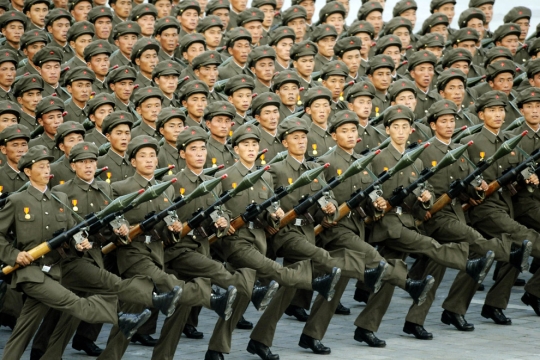
Although the American press has taken a break from counting down the hours until a potential nuclear Iran, such a threat remains a top priority for both the Netanyahu and Obama administrations. The trigger points for an attack by either of these two parties may differ, but leaders of both countries have insisted that “no options are off the table” and that a policy of containment is neither viable nor acceptable. Ehud Barak, Netanyahu’s Minister of Defense, spoke last week at the Aspen Ideas Festival about the differences in Netanyahu’s and Obama’s policies toward a nuclear Iran (he was interviewed by Tom Friedman of the New York Times, whose recent op-ed on what the Egyptian elections mean for Israel is worth a read). In his interview with Friedman, Barak noted similarities such as, “We all say that a nuclear Iran is unacceptable,” and he insisted that both parties believe that negotiations and sanctions should be dramatically accelerated and should be prioritized over any military action. However, he was quick to point out that the consequences of a successful Iranian nuclear weapons program would rest squarely on the shoulders of Israelis. Therefore, he concluded, “We cannot afford delegating this decision even in the hands of our most trusted and trustworthy allies, which is you,” meaning the U.S.
While the Netanyahu administration has been speaking as though the Iranian nuclear problem is uniquely acute for Israelis, retired members of the Israeli intelligence community have criticized this rhetoric. Ex-Mossad chief Meir Dagan argues that Israeli leaders should have framed this as a global threat to peace, instead of just a problem for Israel, saying, “We made a huge mistake by making this our problem.” When it comes to weighing the costs and benefits of a potential attack on Iran, former Chairman of the Joint Chiefs of Staff Admiral Michael Mullen explains that there is a very small time frame available for a successful attack, as attacking too early risks galvanizing the Iranian people around their leaders, but attacking too late might result in a nuclear Iran, which would be “a disaster,” he said. The public dialogue about the risks and rewards of a preemptive strike against a potential Iranian nuclear program is playing out against a backdrop of a crippled Iranian economy. The rial (local Iranian currency) has lost 50% of its value in the past year, and consumer prices have risen by at least 25%. This dramatic inflation has likely been caused in part by Western sanctions, but the further crippling of Iran’s economy can be directly linked to President Ahmadinejad’s failed policies. Economists agree that Ahmadinejad’s “import spending spree” can explain many of the country’s problems. Regardless of whether the central cause of Iran’s flailing economy is the sanctions or the President’s actions, economic distress has the potential to discredit Ahmadinejad’s reputation among Iranians and delay the need for a preemptive strike. As low-level nuclear talks press on, we at RACblog will continue to keep an eye on the results of economic sanctions and attempt to see through the rhetoric to understand exactly how close we might be to a nuclear Iran, a preemptive strike on its facilities or any number of other possibilities. Image courtesy of Ali Mohammadi/Bloomberg News
Related Posts
CTBT at 16 Still Has No Wheels
Iran Update: Nuclear Talks Fail; Hundreds Die in Earthquake

